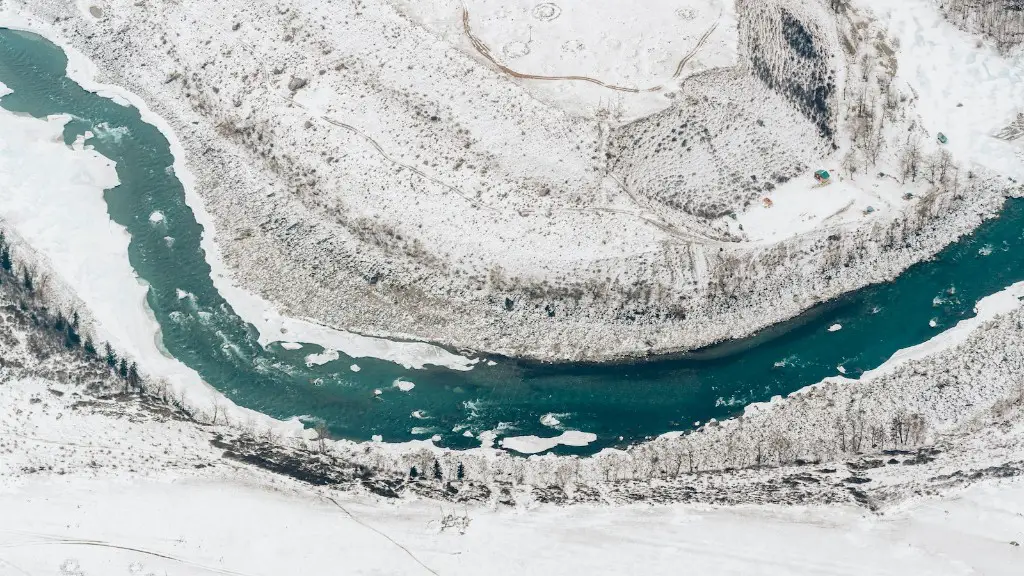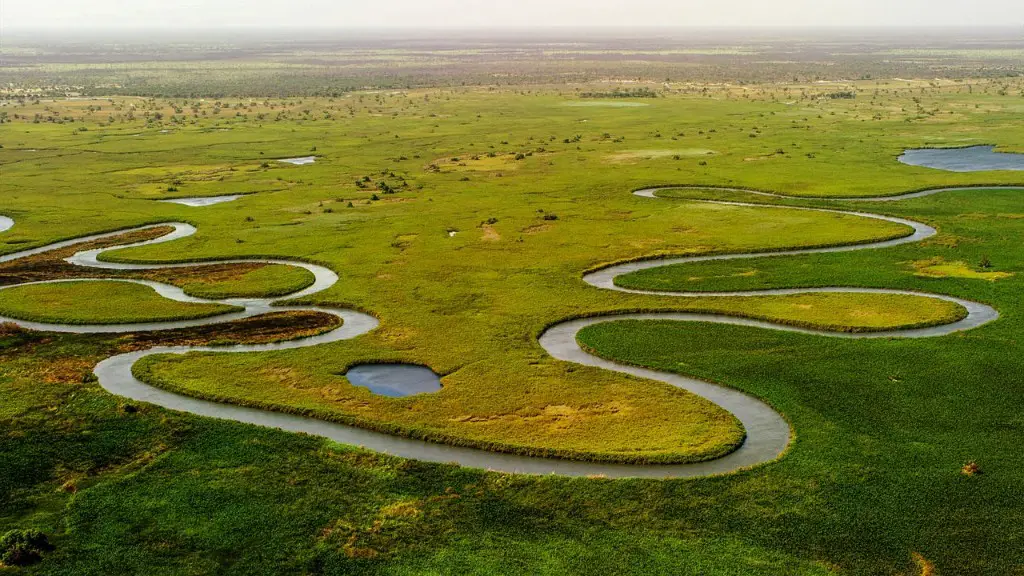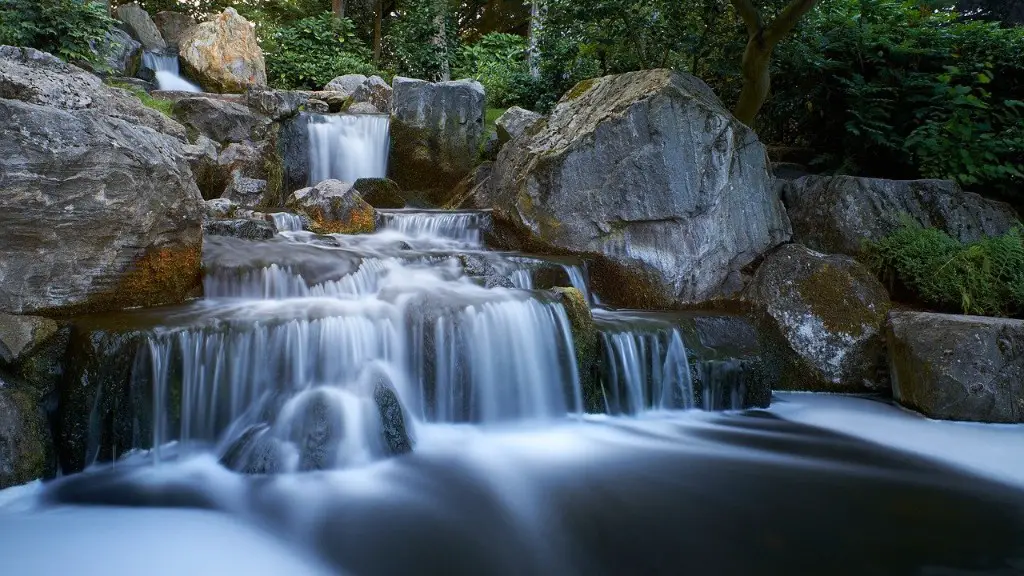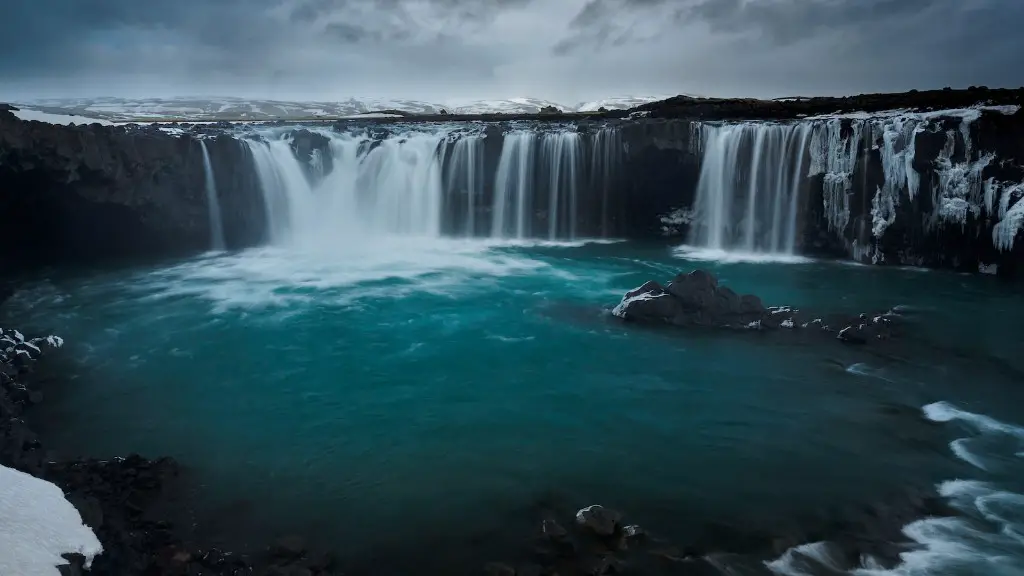The Mississippi River was the cornerstone of the United States during the 1800s. It opened up the Midwest to settlers and played a vital role in the development of America. Every aspect of life along the great river revolved around its use and the impact it left on the nation’s history is still visible today.
One of the most important uses of the Mississippi River in the 1800s was for transportation. Before the steamboat was invented, people relied on the slow but steady current of the river to ferry goods from one area to another. This made it easier to get goods from one part of the country to another and it ultimately helped to fuel the economic development of the entire country. In fact, during the 1800s the Mississippi was considered the most important commercial shipping channel in the nation.
The Mississippi was also vital to the agricultural industry of the 1800s. Farmers used the river to water their crops, as well as to provide fertilizer and transport goods. Irrigation was made much easier thanks to the steady and accessible flow of the Mississippi. This allowed more farmers to cultivate more land and grow more crops. This, in turn, helped to create a more secure food supply and increased the economic stability of the entire nation.
The river was also a major source of entertainment and leisure in the 1800s. People would use the river to go fishing, swimming, and camping. The river was also a popular destination for hunting and trapping. In addition, the Mississippi was often a destination for steamboat rides and other sight-seeing activities. The combination of entertainment and relaxation that it provided made the river a truly enjoyable place to spend one’s leisure time.
The 1800s were also a time of great change for the nation. The nation was in a constant state of flux and the people of that era were forced to adjust to the rapidly changing times. The Mississippi River played a key role in many of these changes, as it provided an outlet for the new ideas and technologies that were developing. It helped to advance the nation in numerous ways, from economic growth to cultural development.
The Mississippi River not only helped to shape the nation in the 1800s, but it continues to have an effect on the American people today. The legacy of the great river still lives on and its impact on the nation’s history is still visible. The river helped to open the doors to a whole new world and set the stage for America’s future.
Political Impact
The Mississippi River had a huge political impact in the 1800s. It served as a natural boundary between the United States and the United Kingdom, and helped to prevent conflict between the two nations. The river also provided an easy way for goods to be shipped and trade to be conducted between the two countries, which helped to boost their economic ties.
The river played an important role in the process of forming the United States. It was used as a means of transportation for goods, troops, and documents that were important for the nation. In addition, the river served as a symbol of the nation’s power and helped to unite the people of the country.
The Mississippi River also helped to expand America’s borders. It allowed American settlers to move further into the Midwest, which helped to gain more territory for the country. This, in turn, helped to fuel the nation’s expansion and growth.
The River also had an impact on the relationships between the states. It provided a convenient and accessible way to ship goods and supplies between them, deepening the connection between them. This, in turn, helped to create an even stronger bond between the states.
Social Impact
The Mississippi River was not only important to the political sphere of the 1800s, but it also had a major social impact. It helped forge relationships between the different Native American tribes who lived along its banks. They used the river to trade goods and pass cultural knowledge between each other, creating stronger alliances than ever before.
The river also opened up the Midwest to settlers, allowing them to move west and settle in new areas. This led to an influx of people who brought with them new ideas, technologies and beliefs, as well as diversity and variety. The Mississippi River also helped to promote education and literacy in the Midwest, as it provided an easy way to distribute books, newspapers and other resources, which helped to enriched the minds of the people living there.
The Mississippi River also helped to create a sense of identity for the nation. It was the lifeblood of the nation and helped to bring people together under a common cause. The river helped to unify the different states of the nation, creating a stronger bond and sense of pride among the people.
The river was also used as a tool to promote social justice in the mid-1800s. Abolitionists used it as a way to transport escaped slaves to freedom, and it was a symbol of hope for people of all backgrounds. The impact of the Mississippi River on social justice is still strong today, as its legacy continues to inspire people to fight for social justice and equality.
Economic Impact
The Mississippi River had an immense economic impact on the nation during the 1800s. It provided a reliable way of transporting goods, which was essential to the growth of the nation’s economy. The river also gave farmers access to water and fertilizer, which led to higher yields and better crop prices.
The river also helped to improve transportation between different parts of the country, which made it easier for people to traverse the nation. This, in turn, led to an increase in trade, as people had access to more markets in different areas of the country.
The river provided an important source of energy for factories and businesses, as steamboats and other vessels relied on the river to power their operations. This played an important role in the growth and development of the nation’s industry.
The Mississippi River was also a key factor in the development of tourism in the 1800s. People would often take steamboat rides down the Mississippi, and many people would stop in towns along the way to take in the sights and experience the culture of the different places they visited.
There is no denying the fact that the Mississippi River had a huge impact on the United States in the 1800s. Its use helped to shape the nation, and its effects can still be seen today. Its importance as a tool of communication, transportation, commerce, and recreation cannot be overstated.
Environmental Impact
The Mississippi River had an important environmental impact in the 1800s. It provided a vital source of freshwater for the surrounding area, which was essential for plant and animal life. It also helped to create a diverse and vibrant ecosystem, which provided habitats for different species of animals and plants.
The river also provided an important source of nutrients for the soil, which allowed farmers to grow higher quality crops. This helped to increase crop yields and improve the nation’s food supply.
The river also provided a vital link between the Great Lakes and the Gulf of Mexico. This connection helped to shape the climate of the area, as the river served as a critical part of the ecosystem in both regions. It also provided a critical connection between the two regions, helping to promote the transfer of knowledge and experience between them.
Unfortunately, the environmental impact of the Mississippi River has not been all positive. As the nation’s population grew, it has put a strain on the river’s resources. This has led to increased water pollution and habitat destruction, which has put many of the river’s species at risk. In addition, deforestation has caused silt to build up in many parts of the river, which has reduced the fertility of certain areas.
Despite the challenges that the Mississippi River has faced, its importance to the nation’s history, politics, economy, and environment cannot be disputed. It is a vibrant and powerful river that continues to shape the history and culture of the United States.





